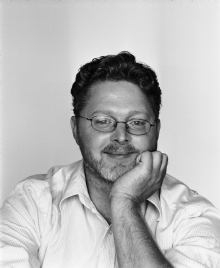
I’m pretty afraid of turning 30. But not for the reasons you’d think.
If you’re a playwright between the ages of 16 and 30 living in Sydney, development opportunities are limitless. Pretty much every arts organisation has a program to assist young or “emerging” artists, and everything from generous cash grants to high-profile mentorships are up for grabs.
For the past year I’ve had the pleasure of being involved in one such development opportunity – namely the Fresh Ink young writers’ ensemble at ATYP. The year-long program has included monthly master-classes; a mentorship with its goals determined by us, the participants; and a place in the National Writers’ Studio. Through the program I’ve made invaluable connections and had my work both published and performed (The One Sure Thing showing at ATYP till February 18th – don’t miss it! End shameless plug.) It’s been such a brilliant opportunity, for which I’m really thankful.
So, I’m not afraid of turning 30 because of any bizarre notion that that counts as “old”. I’m afraid because as soon as your age ticks over to that number, so many brilliant opportunities vanish. Just with the arrival of that arbitrary number. 3-0.
A debate that’s been picking up momentum over the last year or so in the theatre community centres around “mid-career” artists. These are artists who have gone through the “emerging” phase in all its development- and grant-spangled glory, but who are not yet stalwarts or household names. At the National Theatre Summit last year, one artist defiantly referred to herself within this framework as “submerging”.
The idea of the “mid-career”, “submerged” artist evidences an awkward and ungainly crack not only in arts funding, but also in the way we conceive of arts career trajectories. The idea of an “emerging” artist suggests that the only other kind of artist is an “emerged” one, and yet this is not a term that we use. Within the Australian arts scene there are a handful of artists that we can point to as “full time” or “famous” playwrights, but they are far outweighed by the number of artists who are “emerging” and therefore eventually expected to “emerge”. So, does the vocabulary of “emergence” ultimately set up young artists for disappointment? Is it realistic to expect artists to spend their sunshine years of “emergence” in setting up contingencies, networks and even their own companies to support themselves into the post-30 years? And what happens to the diversity of voices in our culture if we partially redistribute emerging artists’ money to mid-career playwrights?
I don’t know! But the guests at the Playwritng Festival’s I’m Not “Latest Thing”… panel sure do (or if not they’re going to try to figure it out). The panel will be lead by Tony McNamara (The John Wayne Principle, The Give and Take, The Virgin Mim). Hope we see you there!
